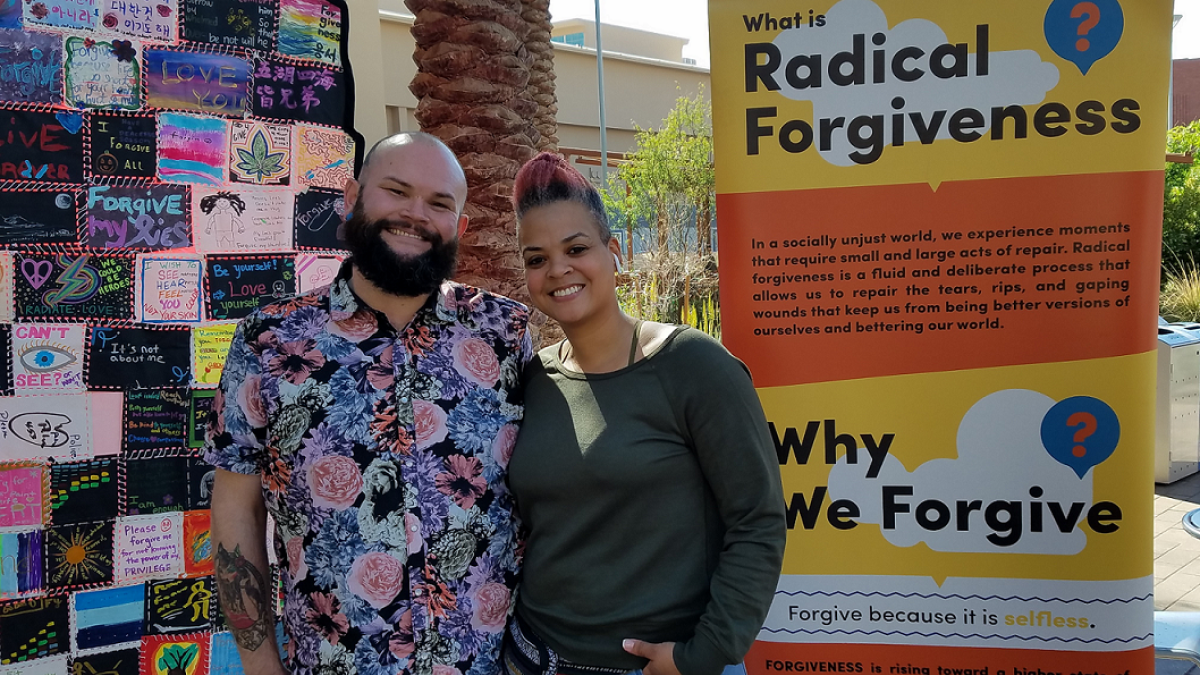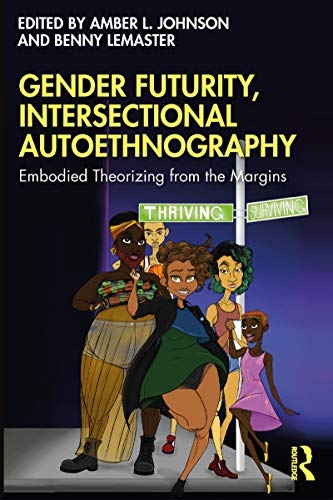ASU professor wins National Communication Association book award

Professors Benny LeMaster and Amber Johnson on the ASU Tempe campus in 2019 with Johnson’s pop-up museum designed to engage community members in discussions and activities around bias, social justice and empathy.
Benny LeMaster, assistant professor of critical/cultural communication and a performance scholar in the Hugh Downs School of Human Communication at Arizona State University, was awarded the 2020 Best Book Award from the National Communication Association (NCA) ethnography division for "Gender Futurity, Intersectional Autoethnography: Embodied Theorizing from the Margins."
LeMaster co-edited the book with friend and colleague Amber Johnson, an associate professor of communication and social justice at Saint Louis University. They will receive the award at the NCA virtual conference in November.
The book is aimed at undergraduate, postgraduate and professional degree students in the humanities and social sciences, such as communication and gender studies, that utilize qualitative methods.
“Their work represents an important milestone as it helps give individuals voices and vocabularies from which to explain, enact and embody their identities," said Hugh Downs School Professor and Interim Director Paul Mongeau. "It foregrounds important concepts and lessons that have been largely ignored in communication scholarship.”
LeMaster says they created the book after receiving requests for classroom activities that affirm trans students.
“Because there wasn’t much trans-affirming content, we decided to fill this need,” said LeMaster.
Johnson says their goal is to replace all other gender communication textbooks with this one: “The gender communication textbooks with new editions, where the authors mention ‘trans,’ think that they did their job. But they didn’t.”
LeMaster, who uses they/them pronouns, adds that most gender communication books rely on “science” to justify people’s gender rather than a person’s sense of self.
“It’s frankly insulting for those of us who are outside of the normative sort of understanding of gender, and it can be really frustrating as an academic trying to enter into a space that’s clearly exclusionary by design,” they said.
Reviewers have called the book "spectacularly diverse" and an "intimate, nuanced and cutting-edge" collection that "fills a void in ethnographic research." They noted that "there was a revelation with every turn of the page," with writing that prompts self-reflexivity and challenges readers to examine themselves to "expose places of bias." Overall, reviewers noted, this book "exemplifies the tremendous promise of autoethnography to do critical and pathbreaking work."

"This award recognizes the cutting-edge value of Professor LeMaster's co-edited collection, including its capacities to touch readers, through narrative and autoethnography, with a wide range of voicings, embodied experiences and critical reflections,” said Daniel Brouwer, an associate professor at the Hugh Downs School.
“Professors LeMaster and Johnson envisioned a project that questions what we think we know about gender and its intersections — via discourses, institutions and structures — and they set an agenda for imagining and mapping new gender futures. Working with 25 different contributors on more than 20 distinct entries, they have created a series of creative meditations, in multiple styles and genres of composition, on repression and violence as well as play, joy and survival.”
LeMaster says the book is about “understanding gender through lived experience, as opposed to something reductive like a predetermined identity category.
“The book covers all kinds of gender expressions and embodiments, not just variant ones. We also have cisgender people in the book. I am really proud of what we did.”

